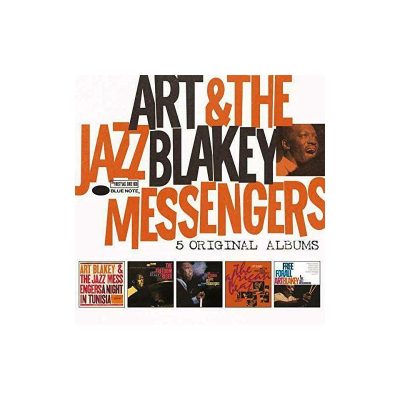A short story by Ken Irvine
Support independent, non-corporate media.
Donate here!

“That’s Youssef off my Christmas Card list.”
The woman was kicking snow off her boots on the step when she heard this.
Her father had a habit of calling people by their surnames when he was disgruntled, so she knew that Shahid must have slighted him.
With the door closed behind her and the thick curtain pulled over she said, “Evening Dad, nice to see you! I don’t think he does Christmas anyway?”
“He sends me one every year.”
“He’s forgotten because he doesn’t see you anymore, or maybe he thinks you’re dead already.”
He suppressed a smile. “No he knows I’m alive ok, I went there today.”
Now she knew. He was almost bed-ridden, no way had he been to the corner shop. His mind had started to go. They had said that might happen – whether by the drugs or the condition.
“So, what happened?” she said, sitting on the footstool beside his easy chair, her hand on his gnarly knee.
“He said the shop’s for regular’s only, or rather, that wife of his did, she looked at me like she didn’t know me – refused to serve me. I stood my ground, she glanced over at him – he peered at me then made a gesture to her – they shooed me out of the shop.”
She could have played along, just listened to this fabrication, humoured him, but instead she found herself correcting him –
“Dad, this happened 45 years ago – not today.” She reflected for an instant. Even now she cringed, and found that four decades later every interaction she had with Shahid was slightly awkward.
*
Throughout her childhood she ran errands for her parents to the shop, Thomson’s Dairy. In the early ’70s a new sign went up – H.S. Youssef and Sons. Shahid’s father moved in.
She noticed a pattern in her parents’ orders. All their groceries were bought weekly in town, they didn’t buy a newspaper and their milk was delivered, so the local shop was only for the occasional luxury. For her father, a Mars Bar, and occasionally her mother would have a bar of Fry’s Chocolate Crème.
And then there was the alcohol. The shop wasn’t licenced but there were certain anomalies that allowed alcohol to be purchased – health products like Sanatogen tonic wine and fizzy fruit drinks like the Olde English vintage cider. That was her father’s choice.
Strange that an 11-year-old could buy alcohol, but there was no accurate labelling – no mention of the alcohol content on the bottle. Her reward was that she got to keep the change – sometimes a few bronze coins, but now and then some silver too. She saved the money, but she wanted more and soon hatched a plan.
A friend had told her about visits to a cash & carry with her parents and how, if you buy in bulk, the goods cost a third of the price. She did the sums and then with her friend and the borrowed ID card, headed off by bus to the warehouse on the outskirts of a neighbouring town. A case of cider, one bulk box each of Mars Bars and one of chocolate were hauled home to her hiding place.
Whenever her dad had summoned her to the living room to give her the order – she took his money, left by the front door, then doubled back down the lane into the garage, selected the items, then pocketed the profits.
She had planned to do it just once; the deal was too good to keep from her parents – she was going to tell them how they could save money. Except it didn’t quite go like that, she bought another, then another. It went on for years.
Until one Friday evening in December.
Her father called her, and she didn’t answer – he looked out and saw her playing in the snow with some other children – snow wasn’t a given in winter, it usually didn’t last long. so he decided to go to the shop himself, he just wanted that bottle of cider, to sit on his seat and relax.
The ringer went and Shahid appeared from the back – her father stood gazing around – there was more stock than he imagined – he picked up a couple of things and scrutinised them.
“May I help you, sir?” Shahid addressed the stranger cagily.
“Bottle of cider, son.” said her dad, distracted.
Nasreen, who was already behind the counter, coughed and her husband glanced over at her.
“We don’t actually serve cider pal” he replied cockily.
“When did you stop?”
When he took over the shop from his father, Shahid had planned to stop stocking the cider but he hadn’t got around to it. He sensed something with this stranger asking for it – maybe he was being tested. He floundered – “I do some, for regulars only, but I don’t …”
Nasreen coughed.
“I’ve given you my money every Friday – for years, I’m a regular.”
Shahid looked confused now; he didn’t quite know how to deal with this overbearing customer.
“Ok maybe not in person, but – come over here son – see the wee girl with the striped hat?”
The shopkeeper came to the door and looked at the group of children in the lamplight who were throwing snowballs at the Perspex windows of the bus shelter and nodded.
“That’s Kate, my messenger – she comes here every week.”
“ – I don’t recognise her, mister-”
He looked in Shahid’s eyes and believed him – at that moment, his daughter noticed him standing in the shop doorway with the shopkeeper. She froze, then bolted.
Half understanding, he walked back inside.
Piecing things together, he said – “So she doesn’t come in here – Mars Bar, Fry’s Creams, Olde English cider?”
“ – No Mr – I wouldnae sell that to a youngster, maybe the previous owners might have, but the rules…”
“Ok.”
Leaving the shop, he noticed some faint music coming from under the counter. He stopped in his tracks. “John Coltrane?” Shahid looked surprised at first then, smiled and said, “No it’s Sonny Rollins – you know this music?”
“I’ve been a fan of jazz since I was a teenager in the 1940s.”
“Some university friends introduced me” Shahid said.
“Oh, you went to the ‘varsity? So, what are you doing here?”
“I studied aeronautical engineering but decided it wasn’t for me – I wanted to be a pilot instead – My dad needed someone to look after this shop – he said if I work hard, I can save some of the profits for the pilot training.”
“What happened to the pilot dreams?”
He just shrugged and glanced up at the shelves. Her father turned and left the shop.
Later, he didn’t let on to his daughter. He told her. “That man in the shop wouldn’t let me have the cider, said it was for regular customers only” and he left it at that, to see if she was going to tell the truth. He also made a New Year’s resolution that he was never going to be accused of not being a regular again – any time he felt he wanted something from the shop he walked across himself. It was the start of a decades’ long friendship with Shahid.
A week later she sidled up to him in the street.
“Hi, you going to the shop?” she said. She paused then blurted it all out. “I’m sorry, I’ve done a bad thing.”
She sobbed as she confessed everything. He listened.
They had reached the shop by the time she finished – she sat on the front windowsill, her hands under her thighs and her feet dangling in space waiting for his verdict.
He was silent, then said: “Yes you have done a bad thing, profiteering on your Mum and me – taking our hard-earned cash. I’m not going to punish you, dear – I’d say that you showed enterprise, so, promise me one thing – take what you have done here and apply it to your life, to your work. Make something of yourself – don’t be like me – working my fingers to the bone to end up living here.” He surveyed the scene – the half-shuttered shop, the group of youths vandalising the new glass-fibre bus stop, the old Ford cars in front gardens propped up on bricks.
*
Now she thought about his advice all those years ago. She had spent a career striking deals, keeping all her customers and clients happy, doing just what he had said, and was now on the cusp of retirement, comfortably off. Her neat suburb with its long, gravelled driveways and hedges of birch, lime and yew was somewhere that her teenage self could only have dreamed of.
“Dad, that was 45 years ago, and you gave me advice that day as you know.”
“No. It happened today – regulars only they say, I’ve been regular for all of those 45 years!”
She part wondered if he was telling the truth: had he made a last visit and Shahid hadn’t recognised him? It seemed unlikely.
It was the start of the Christmas holidays and she had taken the time off to stay with him.
The days were dotted by knocks at the door, neighbours bringing pots of soup, stews, rhubarb crumbles. Sometimes they would come in and chat, but mainly he would tell her he wasn’t in the mood and there would be a doorstep handover.
He died on Boxing Day. He had deteriorated in the morning and the ambulance came – he gave her a wave from the stretcher, the oxygen mask sucking on his hollow cheeks. She followed the ambulance into the hospital and sat in the car park until they said she could come in.
The funeral director seemed to want to get all the pending funerals done before the year end. As the cortège pulled away from the house, more or less everyone in the street lined the kerbside. At the end, slightly apart from everyone stood Shahid, his face wet with tears.
She thought she wouldn’t cry, but when she saw him she found she couldn’t stop.
There was no reception after the funeral, just embraces in the car park, then she went home.
When she got in, there was an envelope on the mat, her name spelled wrong with a C.
A Christmas card. A bit late for that she thought.
“With sympathy, S. Youssef. Call me.” And then his phone number.
She wasn’t in the mood for talking tonight so she texted – drop by tomorrow.
The shop closed at 3pm – she heard the roller-shutter being yanked down then the knock on the door.
He looked around, as if he was in a cave.
“You know, I’ve known your dad all those years and I’ve never been in here”.
He asked about the funeral, and she saw tears forming in his eyes – “I know you are busy running the shop, don’t feel guilty for not being there.”
“It’s not that – we parted on difficult terms.”
She feigned ignorance.
“Do you have time?”
She nodded. It was New Year’s Day, and she had no plans.
“I came here in 1962. I went to school in Glasgow. In the late 1960s I went off down south to Uni. The swinging sixties culture was very alien to me, but I did the same as the other students, grew my hair, wore Afghan coats and smoked ….
I didn’t really get any of the music stuff, but one Sunday morning in a flat after a hippy party a guy played something that sounded different. I picked up the album and started reading the sleeve – Jazz Messengers.
It was the names that got me: Sahib Shihab, Musa Kaleem. Muslim names – for the first time I realised that there were other Muslims, like me, doing things, producing music these hippies thought was cool. OK I later found out most of these musicians were American converts, but more than the Muslim names it was the music that got me. I guess from that moment on jazz became my thing.
Your dad loved hearing the jazz playing in the shop – Nasreen, – my Mrs, makes me play Capital or Heart FM these days – she says the jazz alienates customers, but when your dad came in and if the Mrs wasn’t around, I would switch it off and shove a tape in my little cassette.
We shared a lot of stories. He always said he would take me to one of those jazz clubs, but in Nasreen’s eyes all that music, alcohol, loose women and wild dancing – it would be a slippery slope.”
The woman smiled inwardly as she thought about the reality, – a few octogenarian men, each nursing a half pint of Guinness because that’s all their bladders could take, tapping their knees to a ten-minute double bass solo played by another eighty-year-old.
“Anyway, we were very close I had a lot of respect for the man – I’m guessing he got ill a few months ago – he never said anything about it, but I could see him slow down.
He kept coming in – he bought the same thing every day, tin of mangoes – lately he was so frail that I wondered how he managed it – then I saw his secret – he had been driving over.”
“But I told him to stop driving at least three months ago!” she snapped, confused.
“I opened the shop door to let him out one day and his car was sitting there, driver’s door positioned right at the front step, so that he could shuffle out with the minimum of effort.
I told him You shouldn’t really be bringing that over here – you live fifty yards away, I’ll bring you your things to your house every day.
He looked at me, real anger in his eyes and said Stop bloody interfering! So, I just let him carry on – every day without fail, some days we would have a chat, others it was just a quick in and out – he was my most regular and faithful customer. Look at me, I’m an old man, bald with grey beard and failing eyesight. I was in my early 20s when I first met him.”
What had soured their last meeting. Did Shahid really deny him?
The shopkeeper looked at his wristwatch and seemed to pre-empt her. “The last day, something happened, I had to pretend not to know him.”
His words hung in the room for a few seconds.
“There’s this lady who works for some sort of agency, she snoops on people. You know around here nearly everyone is on some benefit or other, I have no idea if your dad was, but he bloody well should have been, but he also should not have hauled himself out of his deathbed to come shopping, that’s the kind of thing she is trying to catch so I became very wary. He was asking me for something that was short in supply. I was kind of dumbstruck because I knew that lady was listening, I nudged Nasreen.”
He lowered his head and put his hand to his brow.
“ – and Nasreen told him it was regulars only” the woman said, finishing his story for him.
Nodding, he gazed at her, eyes moist, hands clasped tight between his knees.
She closed her eyes, imagining the scene and finally grasping how her dad would have felt, he was fading from life and now he was no longer visible to his friends. The realisation caused an involuntary smile, she breathed in to try to supress it, but couldn’t, the whole misunderstanding was something he might have laughed about in another time.
“I felt like a piece of lowlife, but I thought I would see him next day and we would have a laugh about the whole thing.”
“Don’t worry” she said finally in consolation, “I think he probably forgot all about it”
Before Shahid left she asked him “Would you like to take anything as a memory?” She pointed to a low shelf of vinyl LPs. He looked at her coyly and said, “Really ? – could I have a wee look?”
He started flicking through the sleeves, but his enthusiasm soon waned, he pulled out a few and looked at them confused: André Rieu, Perry Como, Carpenters, Barbara Streisand.
She sensed his disappointment. “Oh he loved jazz, but he wasn’t really a great collector of albums, it would be too expensive I think, so the LPs are stuff he and Mum would enjoy – no, he mainly got his jazz albums from the Record Library – and recorded the ones he liked. She opened the door of a tall cupboard in a G-Plan unit, lined with cassette tapes – the labels written in his neat draughtsman’s hand – catalogued in order from Louis Armstrong to Joe Zawinul.
He spent a moment going through them then picked one – Jazz Messengers on one side and a recording of a radio documentary about Count Basie on the other – he showed her the track listing and smiled – each track ranked out of 10 – “mostly 8 and above – this one’s a belter- is it ok if I take it?”
“Yes” she said “take as many …,” but he seemed to be locked in his world – he tucked the tape into his jacket pocket and headed to the door. His hand was on the aluminium lever handle when he swivelled round and spoke. “You know, we talked a lot, your father and I – he used to tell me about joining the merchant navy at 16, and how he found himself lying terrified in his bunk on the Atlantic convoys, and then his later trips through the Canal and on to Pakistan and India – sometimes we shared greetings in Arabic or Urdu – he had retained a few phrases from the endless days spent in dock.
I grew up in Karachi and he told me that he had been many times.
As a five-year-old, the docks were my playground – we used to go there and cause mischief, steal things – rice, grain, bottles of tomato sauce. We would pester the sailors, I was cocky and I would hold my fists up to them – I remember one time a young officer engaged me in a play fight – he allowed me to punch him in the stomach – he staggered and dropped to the floor, like in the movies and I got the biggest laugh from my friend when I put my foot on him and flexed my skinny malnourished arms. The sailor winked at me and got up, still play-acting, and staggered off down the quayside with his friends.”
Pausing, he took her hand and kissed it, saying “You know, I like to think your dad was that young officer and right now, having been dealt that blow he has picked himself up and is staggering down the road laughing with friends into eternity.”
He turned and headed off down the misty street, and she shivered and went inside and poured herself a sherry from a dusty bottle. She was about to close the tall cupboard door, but instead stood for a few seconds looking at the neat rows of cassettes alphabetically indexed. She stopped at the recently vacated slot in the – “J” section and raised a glass, mouthing to herself.
“I’m Katherine, orphan”.









